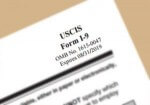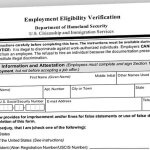New Version of Form I-9 Is Now Required

The United States Citizenship and Immigration Services (USCIS) has released a new version of Form I-9. Starting this Friday, May 1, 2020, employers must start using Form I-9 Revision 10/21/19. The form is used to verify the identity and employment authorization of individuals (both citizen and noncitizen) hired for employment in the United States. Both Read more




